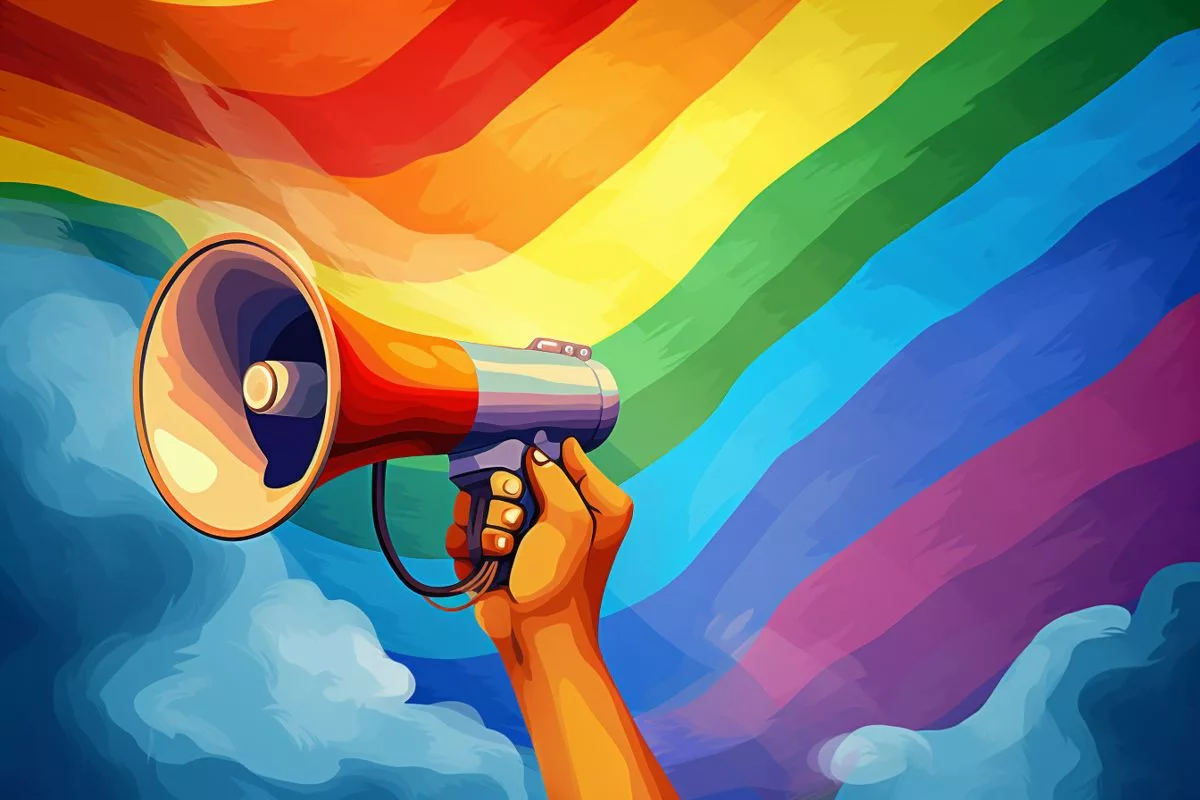The Sex Workers Education and Advocacy Taskforce hosted the first-ever summit for the decriminalisation of sex work in South Africa, bringing together sex workers and state authorities to discuss the highly charged topic. The aim is to re-advance the bill for the decriminalisation of sex work to Parliament by March 2024, eliminating criminal charges against sex workers, legalising the purchase and sale of sex, and revoking all laws that criminalise sex work. The summit’s focal point was campaigns advocating for the rights of sex workers, including those addressing HIV prevention services and dismantling structural barriers.
The First-Ever Summit for the Decriminalisation of Sex Work in South Africa
The Sex Workers Education and Advocacy Taskforce hosted the first-ever summit for the decriminalisation of sex work in South Africa. Attendees included sex workers and state authorities, with the aim of re-advancing the bill for the decriminalisation of sex work to Parliament by March 2024. The bill would eliminate criminal charges against sex workers, legalise the purchase and sale of sex, and revoke all laws that criminalise sex work.
The Rise of a Revolutionary Event
In the vibrant urban landscape of Cape Town, the Sex Workers Education and Advocacy Taskforce (SWEAT) laid the foundation for an instrumental event – the first-ever summit for the decriminalisation of sex workers. Spanning two days, the summit brought together a wide spectrum of attendees, ranging from sex workers to state authorities, marking an important leap towards fostering open discussions on a topic that is typically veiled in stigma.
The summit served as a hub for a myriad of views, experiences, and standpoints on the highly charged topic of sex work. SWEAT, a body established on advocacy principles, ensured that this event wasn’t merely a lone voice in a void. Their objective was straightforward: to re-advance the bill for the decriminalisation of sex work to Parliament by March 2024, prior to the elections.
The Rocky Road to Decriminalisation
The journey towards decriminalisation in South Africa hasn’t been smooth. Earlier this year, a preliminary bill meant to decriminalise sex work was on the verge of a parliamentary vote but was unfortunately postponed. Constance Mathe, a committed sex worker and the national coordinator of the Asijiki Coalition, reflected on the hurdles they have encountered during their two-decade-long journey toward decriminalisation. Mathe revealed that the bill, which took approximately eight years to draft, was eventually presented to the Department of Justice in March 2022, only to experience a two-month delay.
Mathe underscored the urgency of the situation with a rather bleak analogy, likening the ordeal of sex workers to “chickens being slaughtered”. She emphasized that the decriminalisation bill isn’t merely about altering the legal status of sex work, but also about protecting the human rights of sex workers, a marginalized group frequently subjected to violence and prejudice.
The Positive Impact of Decriminalisation and Unionisation
Once approved, the bill would fundamentally transform the status of sex work in South Africa. It would eliminate criminal charges against sex workers, legalize the purchase and sale of sex, and revoke all laws that criminalize sex work. Chrispin Phiri, a spokesperson for the justice department, affirmed that the bill is currently under review, and the Department is committed to prioritizing the decriminalisation of sex work.
The summit also gained backing from COSATU, a prominent trade union federation in South Africa. Jamela Mhlarhi, national chairperson of the COSATU Young Workers, repeated COSATU’s endorsement for the decriminalisation bill and underscored the necessity of unionizing sex workers. She pointed out that organization is crucial for this marginalized demographic, stating: “If you aren’t organised, you are vulnerable.”
Normalising the Discourse around Sex Work
The summit comprised numerous sessions addressing concerns of sex workers, incorporating discussions on decriminalisation and youth activism. A notable emphasis was placed on countering the stigmatization of sex work through social media platforms like Instagram and TikTok. The objective was to normalize and humanize the discourse on sex work, steering it away from the insensitive stereotypes that frequently dominate the narrative.
Campaigns advocating for the rights of sex workers, including those addressing HIV prevention services and dismantling structural barriers, constituted the summit’s focal point. The summit also expanded beyond national boundaries by incorporating insights from activists in Kenya, Brazil, and New Zealand.
Despite facing numerous hurdles, SWEAT’s substantial strides in South Africa have garnered international acclaim. Josephine Achieng, the Deputy Director of Bar Hostess Empowerment and Support for Sex Workers (BHESP) in Kenya, praised South Africa for the progress they’ve achieved. She highlighted the advantages of decriminalisation, stating that the trade in Kenya would be significantly safer if it wasn’t prohibited, further underscoring the global significance of the decriminalisation issue.
The SWEAT summit marks a crucial turning point in the history of sex worker advocacy in South Africa. It underscores the importance of open dialogue and collective action to establish an environment that respects the rights and dignity of sex workers. While the path to decriminalisation may be lengthy and fraught with challenges, events like these indicate a promising shift in the narrative.
What is the Embracing Dialogue Summit for Sex Worker Decriminalisation in South Africa?
The Embracing Dialogue Summit for Sex Worker Decriminalisation in South Africa is the first-ever summit hosted by the Sex Workers Education and Advocacy Taskforce (SWEAT) for the aim of re-advancing the bill for the decriminalisation of sex work to Parliament by March 2024. The bill would eliminate criminal charges against sex workers, legalise the purchase and sale of sex, and revoke all laws that criminalise sex work.
Who attended the Embracing Dialogue Summit for Sex Worker Decriminalisation in South Africa?
The summit brought together a wide spectrum of attendees, ranging from sex workers to state authorities, marking an important leap towards fostering open discussions on the topic of sex work.
What is the objective of the Embracing Dialogue Summit for Sex Worker Decriminalisation in South Africa?
The objective of the Embracing Dialogue Summit for Sex Worker Decriminalisation in South Africa is to re-advance the bill for the decriminalisation of sex work to Parliament by March 2024, prior to the elections. The bill would fundamentally transform the status of sex work in South Africa, including the elimination of criminal charges against sex workers, legalisation of the purchase and sale of sex, and revoking all laws that criminalise sex work.
What is the stance of the South African government towards the decriminalisation of sex work?
Chrispin Phiri, a spokesperson for the justice department, affirmed that the bill is currently under review, and the Department is committed to prioritizing the decriminalisation of sex work. COSATU, a prominent trade union federation in South Africa, also backed the decriminalisation bill.
What was the main focus of the Embracing Dialogue Summit for Sex Worker Decriminalisation in South Africa?
Campaigns advocating for the rights of sex workers, including those addressing HIV prevention services and dismantling structural barriers, constituted the summit’s focal point. The summit also expanded beyond national boundaries by incorporating insights from activists in Kenya, Brazil, and New Zealand.
What is the significance of the Embracing Dialogue Summit for Sex Worker Decriminalisation in South Africa?
The SWEAT summit marks a crucial turning point in the history of sex worker advocacy in South Africa, underscoring the importance of open dialogue and collective action to establish an environment that respects the rights and dignity of sex workers. Despite facing numerous hurdles, events like these indicate a promising shift in the narrative towards the decriminalisation of sex work.












